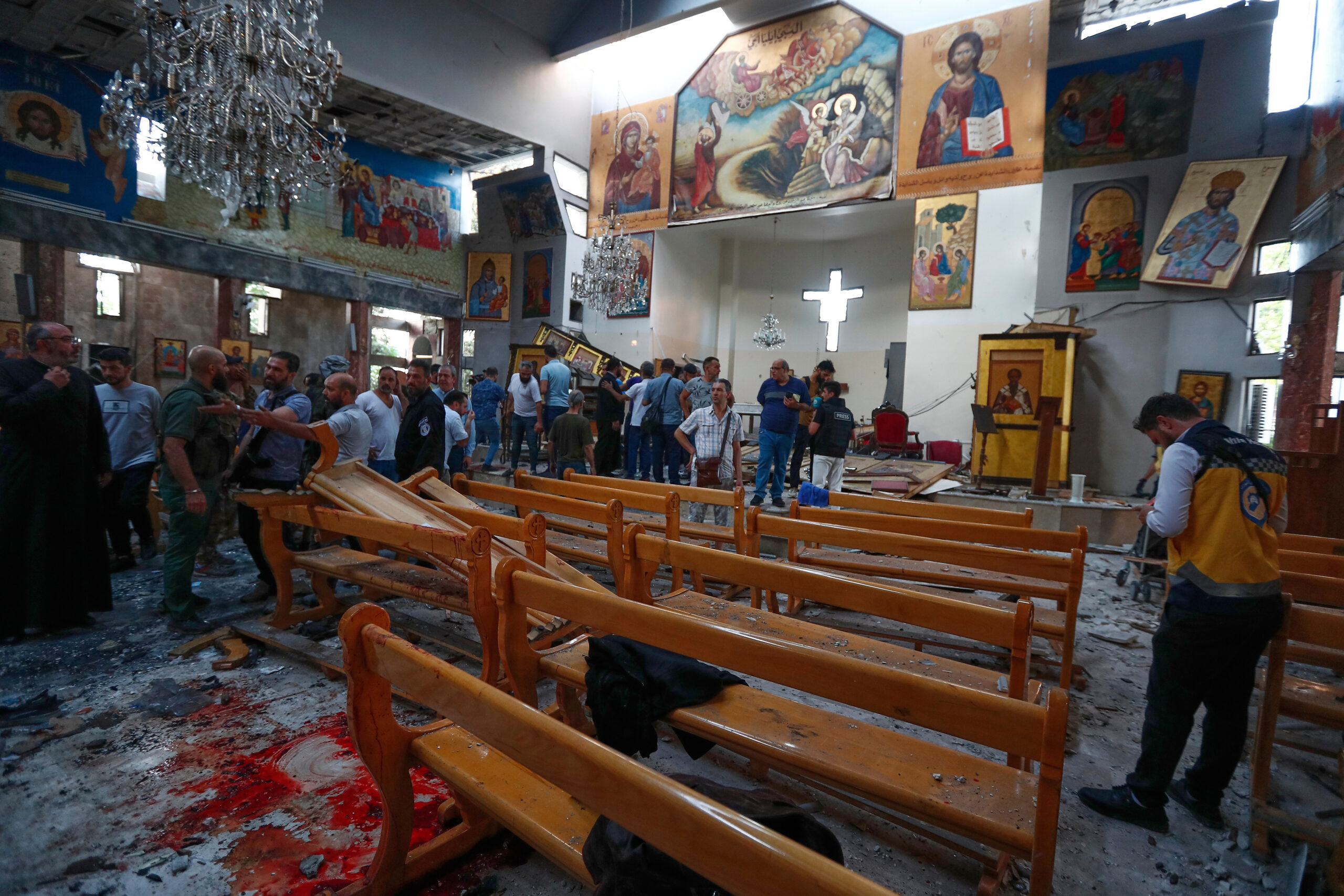
DAMASCUS, Syria (AP) — The death toll from a suicide bomb attack on a church in Syria at the weekend has risen to 25, state media said Monday.
The attack Sunday on the Mar Elias Greek Orthodox church during a Divine Liturgy in Dweil’a, near Damascus, was the first of its kind in Syria in years, and comes as Damascus under its de facto Islamist rule is trying to win the support of minorities.
The Interior Ministry and witnesses said a gunman entered the church and opened fire on the congregation before detonating an explosive vest.
State news agency SANA, citing the Health Ministry, said 63 other people were wounded in the attack. Father Fadi Ghattas told The Associated Press that some 350 people were praying at the church.
The United States, the European Union and governments across the Middle East condemned the attack, decrying it as a terrorist attack.
“These terrible acts of cowardice have no place in the new tapestry of integrated tolerance and inclusion that Syrians are weaving,” said U.S. Special Envoy for Syria and Ambassador to Turkey Tom Barrack in a post on X. “We continue to support the Syrian government as it fights against those who are seeking to create instability and fear in their country and the broader region.”
Saudi Arabia’s Foreign Ministry in a statement affirmed Riyadh’s rejection of “the targeting of places of worship, the intimidation of innocent civilians, and the innocent bloodshed.”
As President Ahmad al-Sharaa struggles to exert authority across the country, there have been concerns about the presence of sleeper cells of extremist groups in the war-torn country.
No group immediately claimed responsibility for the attack on the church, but the Interior Minister has blamed the extremist Islamic State group.
Syrians decried the attack, many seeing it as a blow to stability in the country after 14 years of war. Syrian Christians have appealed that the attack is not just a threat against them but to everyone in the country regardless of their religious affiliation.
“It is definitely an attack on civil peace and coexistence in this country,” said Wassim Boutros, who lives in Damascus.
Wajiha umm Mohammed said that she and her daughter were devastated to learn that one of their friends was killed in the attack.
“All our lives, we’ve been Christians and Muslims together—living side by side,” umm Mohammed, a Muslim, said. “We’ve never let anything divide us, and we won’t start now.”
She called for more government action to protect minorities.
“On our holiday—Eid al-Adha—there was a strong security presence at the mosque. So during mass, there should also be security, with checks on who goes in and out and proper screening,” she said. “Where was the security for this? This isn’t right — it’s wrong.”
The bombed church held a vigil to pray for the victims of the attack.
“We Christians love the enemy before the ally. We forgive and we love,” said one lady at the church, struggling to hold back her tears. “Why do they harm us? Is it because we are a religion of love?”
Father Semaan Ayoub, one of many clergymen from around Damascus who attended said the attack was not “humane, religious, or moral.”
“We’ve heard of such attacks, but now we have felt the pain of it, unfortunately,” Ayoub told the AP after the vigil. “We are peaceful people. We won’t respond to evil with evil.”
Since the toppling of Bashar Assad and his family’s decades-long dictatorial rule of Syria last December in a lightning insurgency, al-Sharaa has been pushing to win the support of Syria’s non-Sunni-Muslim minority groups who are concerned about life under Islamist rule.
—
Chehayeb reported from Beirut.
